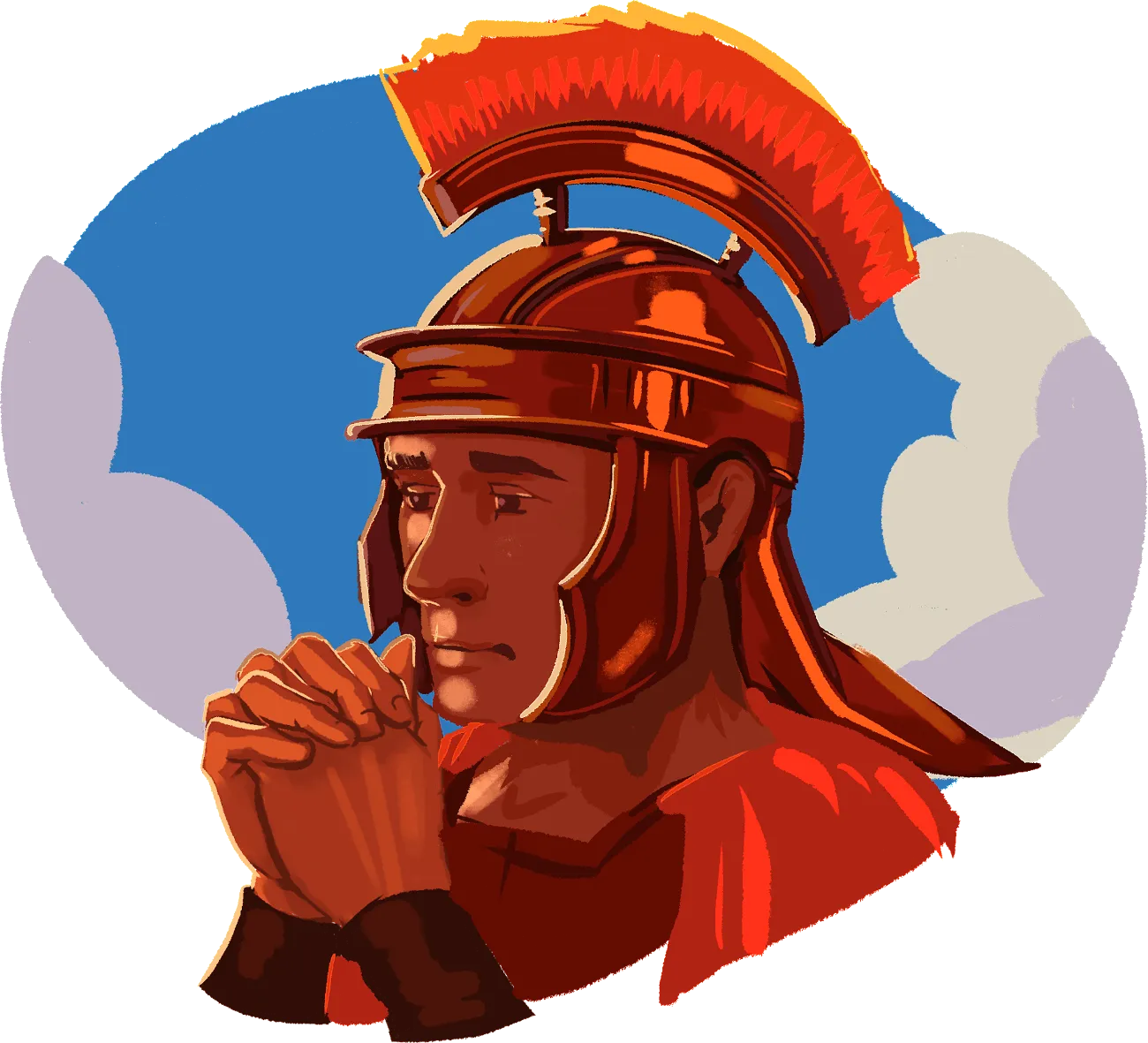Loading…
An Army Officer Asks Help for His Servant

This chapter is based on Matthew 8:5-13; Luke 7:1-17.
Christ was sad that His own nation wanted outward signs that He was the Messiah. But He was amazed that the centurion who came to Him did not even ask Him to come in person to perform the miracle. “Only speak a word, and my servant will be healed.” 3TC 200.2
The centurion’s servant was paralyzed and at the point of death. Among the Romans, servants were slaves, bought and sold and treated with abuse and cruelty. But the centurion, tenderly attached to his servant, very much wanted him to recover. He believed that Jesus could heal him. The reports he heard had inspired him with faith. 3TC 200.3
This Roman was convinced that the Jews’ religion was better than his own. He had broken through the prejudice and hatred that separated the conquerors from those they had conquered and had shown kindness to the Jews. The teaching of Christ met the needs of his heart. All that was spiritual within him responded to the Savior’s words. But he felt unworthy to come into Jesus’ presence, so he appealed to the Jewish elders to request the healing of his servant. They were acquainted with the Great Teacher and would, he thought, know how to approach Him in a way to win His favor. As Jesus entered Capernaum, a delegation of the elders met Him. They urged that “the one for whom He should do this was worthy, ‘for he loves our nation, and has built us a synagogue.’” 3TC 201.1
Jesus immediately set out for the officer’s home, but the crowds pressed in on Him, and He advanced slowly. The centurion, in his self-distrust, sent Him the message, “Lord, ... I am not worthy that You should enter under my roof.” But the Savior kept on His way. Daring at last to approach Him, the centurion said, “I did not even think myself worthy to come to You.” “Only speak a word, and my servant will be healed. For I also am a man under authority, having soldiers under me. And I say to this one, ‘Go,’ and he goes; and to another, ‘Come,’ and he comes; and to my servant, ‘Do this,’ and he does it.” 3TC 201.2
“As I represent the power of Rome and my soldiers recognize my authority, so You represent the power of the Infinite God, and all created things obey Your word. You can command the disease to leave, and it will obey. You can call heavenly messengers to give healing power. Just speak the word, and my servant will be healed.” 3TC 201.3
“When Jesus heard these things, He marveled at him, and turned around and said to the crowd that followed Him, ‘I say to you, I have not found such great faith, not even in Israel!’” And He said to the centurion, “‘As you have believed, so let it be done for you.’ And his servant was healed that same hour.” 3TC 201.4
In their self-righteousness, the Jewish elders recommended the centurion because of the favor he had shown to “our nation.” But the centurion said of himself, “I am not worthy.” He did not trust to his own goodness. His faith fastened onto Christ in His true character, the Friend and Savior of mankind. 3TC 202.1
When Satan tells you that you are a sinner, tell him that Christ came into the world to save sinners. The plea that we may urge now and always is our completely helpless condition that makes His redeeming power necessary. 3TC 202.2
“In my hand no price I bring;
Simply to Thy cross I cling.” 3TC 202.3
The Jews saw nothing to be desired in Jesus. But the centurion, educated in the idolatry of Rome, seemingly cut off from spiritual life by education and surroundings and shut out by the bigotry of the Jews—this man understood truth to which the children of Abraham were blind. The “Light which gives light to every man who comes into the world” (John 1:9) had been shining on him, and he had recognized the glory of the Son of God. To Jesus, this was an advance assurance of the gathering of souls from all nations to His kingdom. 3TC 202.4
